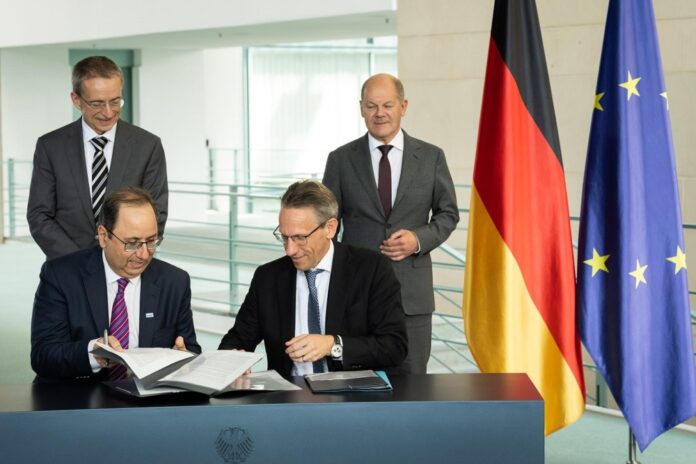Previously the government had baulked at firm’s demands for higher subsidies
Intel is to invest €30 billion in a German chip-manufacturing facility. Bloomberg reports a third of the sum will be provided by the German government after the two parties finally reached agreement on a support deal for the site in Magdeburg.
Previously the German government had objected to Intel’s request for more subsidies, insisting Intel would have to stump up more if it were to raise the subsidies on offer.
Changing circs
The changed demands resulted from Intel originally estimating that building the manufacturing site would cost €17 billion in March 2022 as part of the €33 billion it pledged to invest in manufacturing facilities in Europe.
A lot has changed since then, including the intensification of war after Russia’s invasion of Ukraine and soaring inflation.
Intel’s pledge was made against the backdrop of the Europe Union’s wider recovery and self-sufficiency initiatives, including the so-called Chips Act. These measures are designed to make Europe more self-sufficient, technologically speaking, including semi-conductors. This is primarily in response to supply chain issues brought about by geopolitical tensions, most notably between China and the West.
Production by 2028?
The two sides bridged the gap and the Magdeburg site is expected to start production by 2028. The picture shows Officials signing a revised letter of intent for Intel’s planned wafer fabrication site in Magdeburg. Keyvan Esfarjani, Intel’s chief global operations officer is on the left at the front, with Jörg Kukies, Secretary of State for Economic, Finance and European Affairs. Pat Gelsinger, Intel’s CEO is back left with and Olaf Scholz, the German chancellor on the right.
The site will comprise two manufacturing facilities for Intel’s products and bespoke semi-conductors for specific customers.
Intel’s argument for subsidies is that the site will create tens of thousands of jobs across industry, starting with about 7,000 construction jobs as the site is built and 3,000 “high-tech” jobs at Intel itself once it’s up and running.
It is expected that Magdeburg will be a regional innovation hub and help develop a European semiconductor ecosystem.
CEO Pat Gelsinger said in a statement, “Building the ‘Silicon Junction’ in Magdeburg is a critical part of our strategy for Intel’s growth.
“Combined with last week’s announcement of our investment in Wrocław, Poland, and the Ireland sites we already operate at scale, this creates a capacity corridor from wafers to complete packaged products that is unrivalled and a major step toward a balanced and resilient supply chain for Europe.”



